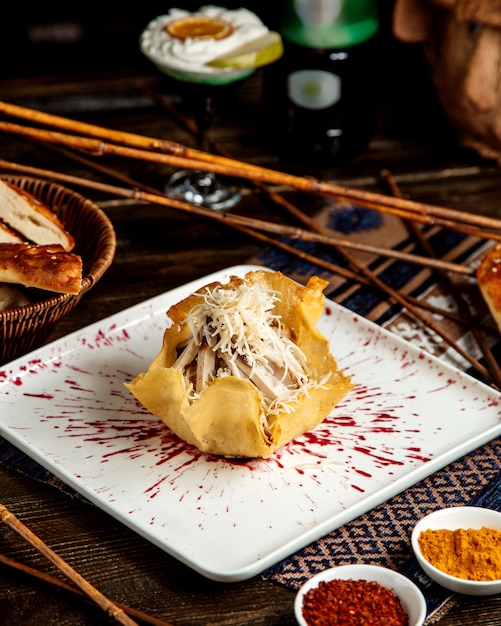
If you’re visiting southwest China’s beautiful Yunnan province, you might pass through Dali, known for its charming pagodas and stone-paved streets. But just a 30-minute bus ride south of Dali is the Dacangzhen Valley, a hidden gem featuring one of Yunnan’s oldest Muslim communities, who have preserved their traditions amidst a primarily Buddhist region. Exploring this valley offers a unique blend of Far Eastern and Middle Eastern cultures, eagerly shared by the welcoming locals.
As you drive from Dali to Dacangzhen, you’ll pass through Mamichang, where a grand ceremonial stone gate decorated with Chinese and Arabic inscriptions welcomes you. The climb up this town’s steep hill reveals even more hand-painted slogans mixing governmental messages, motivational quotes, and Islamic teachings. At the hill’s peak, you’ll find the mosque, an architectural mix of Islamic and Chinese elements, where the town’s older residents often gather to chat in Chinese while greeting each other with “salaam aleikum.”
After exploring Mamichang, catching a local tuk-tuk will easily take you to the next stop: Donglianhua, a tourist town without tourists. Developed in 2008, the town is eerily quiet outside major Chinese holidays. The main attractions here are the Ma brothers’ mansions, historical figures in local trade. Ma Ruji’s mansion is especially elaborate with intricate stone carvings and a panoramic view from the top floor. Ma Ruqing’s mansion, still home to local families, offers a more personal tour with residents eager to share their family history.
Don’t miss the local mosque in Donglianhua, which resembles a typical Chinese temple. Beneath its minaret is a small museum detailing Donglianhua’s history and showcasing antique artifacts. If you’re interested in the origins of Dacangzhen, visit Xiaoweigengcun, one of the valley’s earliest settlements. Despite its quiet appearance, the town comes to life during daily prayers. Here, you’ll see a stark contrast between the Chinese-style minaret and the modern, Turkish-influenced prayer hall.
Another spot worth visiting is Yonghecun, especially on Sundays when it hosts a lively street market. This bustling market, dominated by Muslim housewives in colorful headscarves, stands in contrast to the quieter, predominantly male mosque gatherings. The market offers an array of Chinese dishes, tweaked to exclude pork, with snacks like erkuai and unique local delicacies like candied melons and pastries.
Dacangzhen offers a fascinating glimpse into a different way of life within Yunnan, blending modernity with tradition. Whether you’re visiting for a day or staying longer, the Muslim villages in this serene valley promise an eye-opening experience that feels worlds apart from the hustle and bustle of modern China.
Getting to Dacangzhen from Dali is straightforward, with buses departing every ten minutes from the southwest bus station in the Xiaguan district. The journey costs 14 RMB ($2) each way. For traveling within the Dacangzhen Valley, tuk-tuks are your best bet, costing around 10 to 15 RMB ($1.45 – $2) per ride. If you choose to stay overnight, options like the Jiahua Hotel or the Gui Qu Lai Hotel in Dali offer comfortable accommodations.
